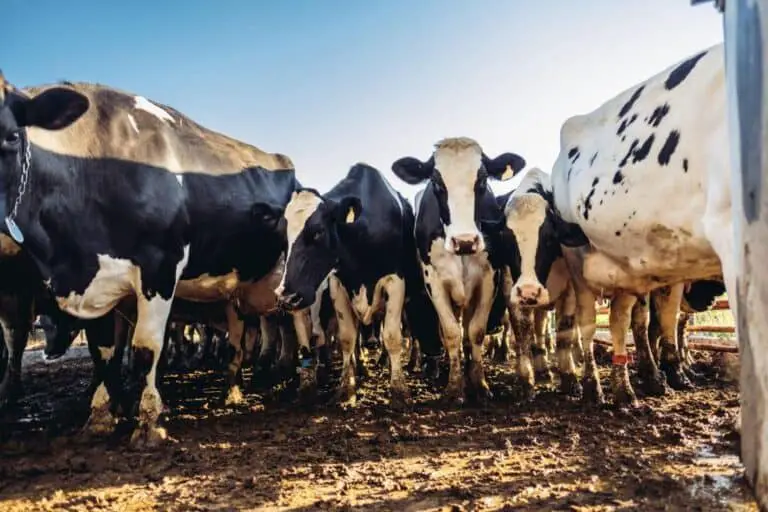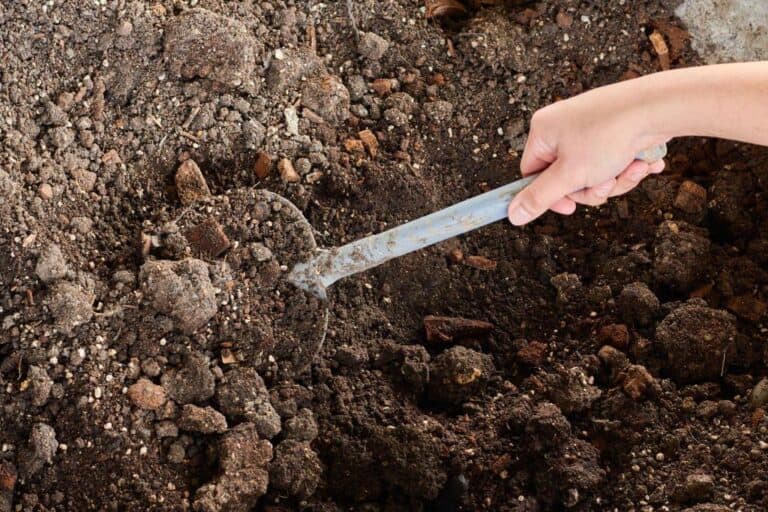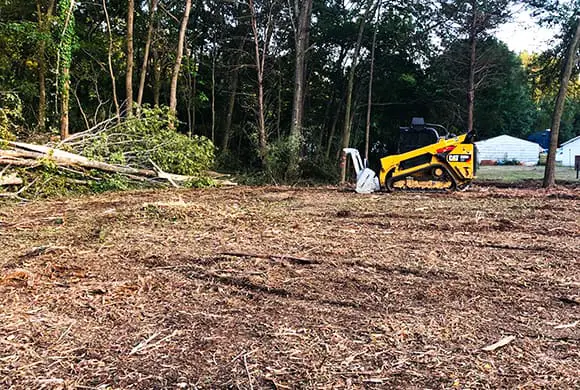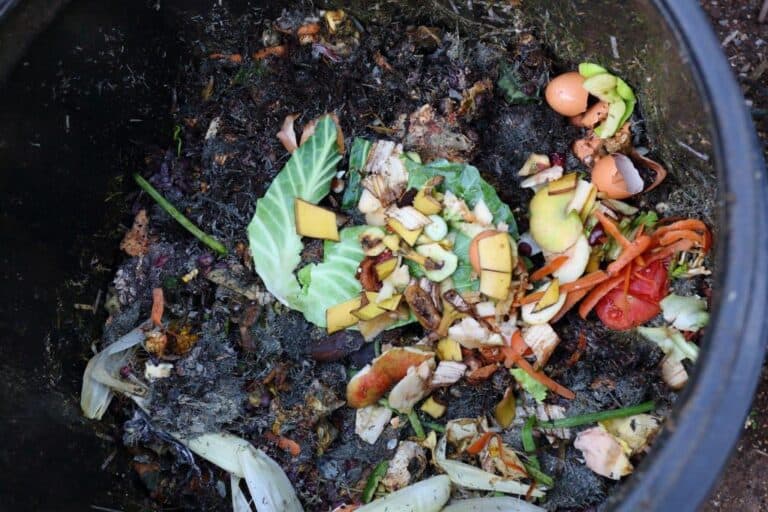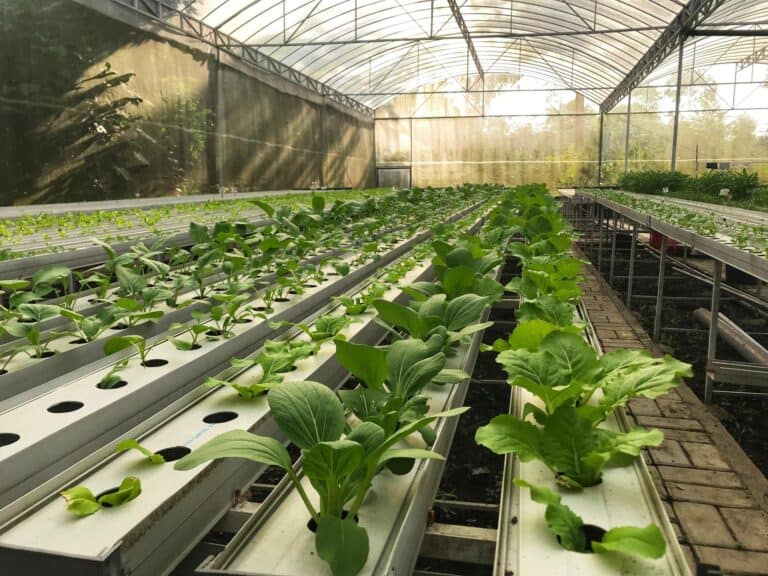Goat Manure and Vermicomposting: Growing Your Eco-Friendly Garden
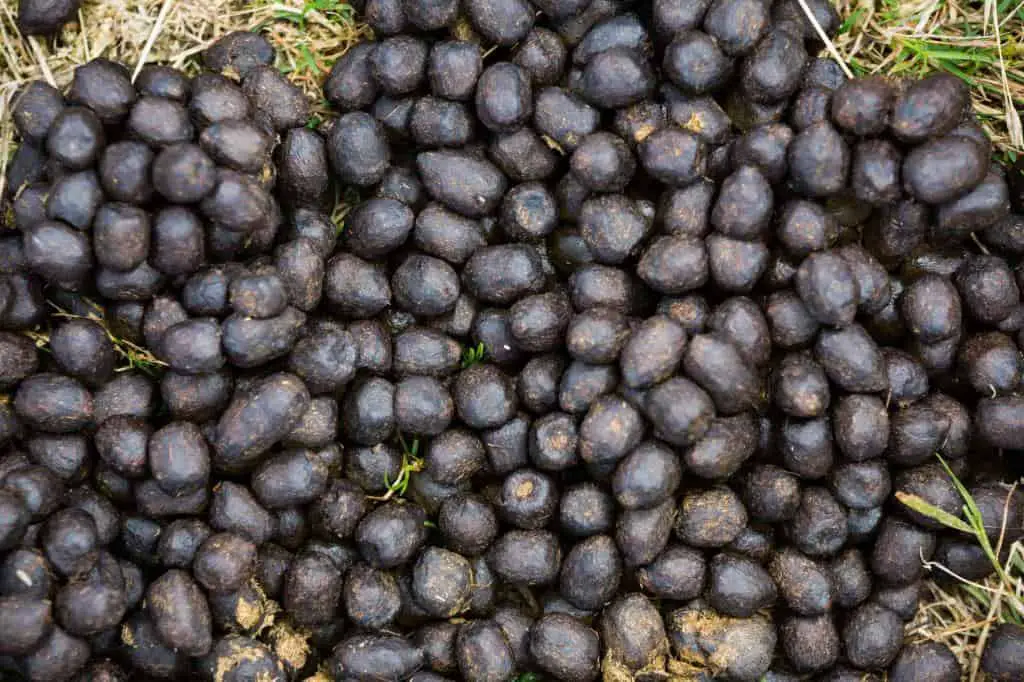
In the tranquil dance of nature, where earth and sustainability meet, lies an exquisite gardening secret that’s waiting to be unveiled: the harmony between goat manure and vermicomposting. It’s a tale of eco-friendliness, a story of nurturing your garden while treading lightly upon the planet.
Imagine a garden thriving with life, with verdant plants that not only bear abundant fruits and flowers but also carry the imprint of an eco-conscious gardener. This enchanting world can be yours, and it all begins with two key players: goats and worms.
Goat manure, rich in nutrients, is a gift from your caprine companions. When coupled with the magic of vermicomposting, where diligent earthworms transform waste into gold, you unlock the door to a greener, more sustainable garden. It’s a journey of soil enrichment and waste reduction, an ode to a harmonious coexistence between humans, goats, and earthworms.
So, if you’re ready to embark on a gardening adventure that honors the environment, join us as we explore the enchanting synergy of goat manure and vermicomposting. It’s a path to bountiful gardens and a more sustainable tomorrow.
Understanding Goat Manure’s Composition and Nutritional Value
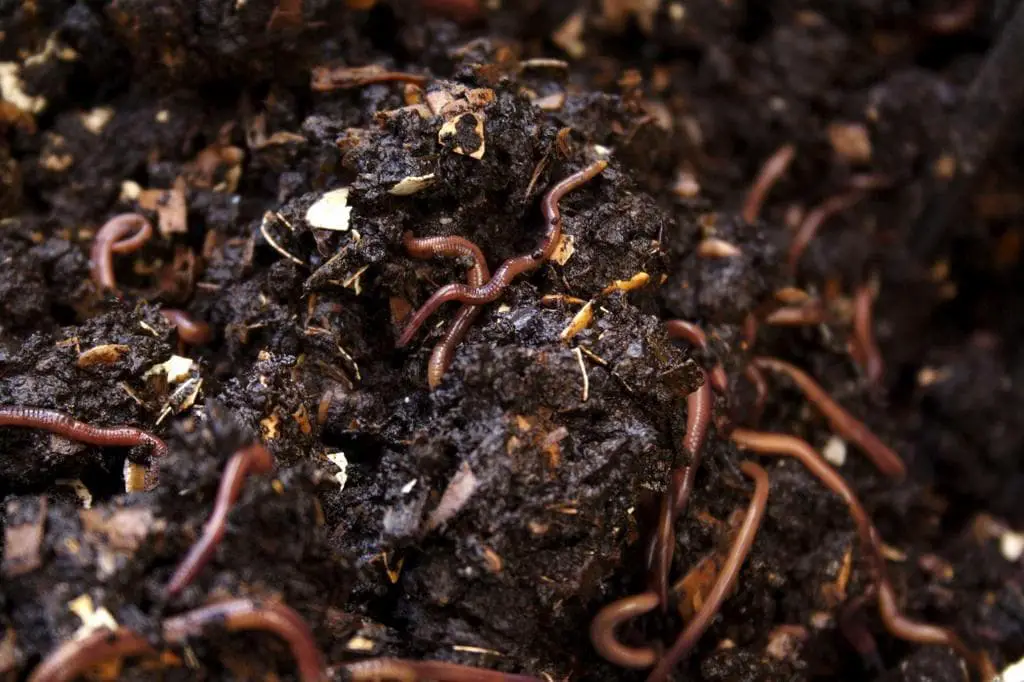
Goat manure is a treasure trove of nutrients. These little pellets pack a punch, offering a rich blend of nitrogen, phosphorus, and potassium (NPK) – the holy trinity of plant nutrition. Nitrogen promotes leafy growth, phosphorus supports root development, and potassium helps with overall plant health and disease resistance.
Overview of Goat Manure Composition
Goat manure is a garden’s secret weapon, a treasure chest of nutrients waiting to breathe life into your plants. Unlike other livestock waste, goat droppings have a homogeneous texture and fewer weed seeds, making them a gardener’s delight. Goats, being ruminants, have a digestion system that breaks down organic matter thoroughly, resulting in compost-friendly pellets.
A typical composition of goat manure includes approximately 1.5% nitrogen, 1.1% phosphorus, and 0.5% potassium (NPK) per kilogram. This magical trio of nutrients is the key to vigorous plant growth. But the goodness doesn’t end there. Goat manure also contains essential micronutrients like calcium, magnesium, and sulfur, adding to its value as a natural fertilizer.
Nutritional Value for Soil and Plants
Goat manure offers a bounty of benefits to your garden’s soil and the plants that call it home. When you incorporate goat manure into your gardening routine, you’re infusing the soil with rich organic matter. This improves soil structure, enhances aeration, and encourages beneficial microbial activity. The result is soil that’s easy for plant roots to navigate, brimming with life, and teeming with nutrients.
Additionally, the slow-release properties of goat manure mean your plants receive a consistent, long-term supply of nutrients, reducing the risk of nutrient imbalances and plant stress. In addition to being full of nutrients, this fertilizer also helps your garden hold on to water, even when it is dry outside.
The table below summarizes the key nutrients found in goat manure:
| Nutrient | Typical Content |
| Nitrogen (N) | 1.5% |
| Phosphorus (P) | 1.1% |
| Potassium (K) | 0.5% |
| Calcium (Ca) | Varies |
| Magnesium (Mg) | Varies |
| Sulfur (S) | Varies |
What is Vermicomposting?
Vermicomposting is a process that uses earthworms and microorganisms to convert organic materials into a valuable soil amendment for plants and crops.
The process involves feeding organic waste materials to earthworms, which then digest and decompose the waste, creating a nutrient-rich soil amendment called vermicompost or worm castings.
Here are some key points about vermicomposting:
- Vermicompost is made when earthworms break down organic matter with the help of microorganisms and macroorganisms that work at room temperature.
- Vermicomposting can divert organic residuals from landfills, reduce trash collection fees, and create resources from waste materials.
- Vermicompost can be utilized in gardens to promote plant growth. It can be mixed with potting media or added directly to the soil to provide plants with valuable organic matter, nutrients, and a diversity of beneficial microbes.
- Red worms or red wigglers are preferred for vermicomposting because they reproduce rapidly, process large amounts of food waste, and can thrive in confined spaces.
Vermicomposting is widely used in North America for on-site institutional processing of food scraps, such as in hospitals, universities, shopping malls, and correctional facilities.
Vermicomposting can also be used to clean sewage, and a different version of the process is called vermifiltration. It gets rid of organic matter, pathogens, and oxygen demand from sewage or the blackwater from flush toilets.
Benefits of Vermicompost from Goat Manure
Improved Soil Structure
One of the primary advantages of vermicompost made from goat manure is its ability to improve soil structure. It enhances soil aeration, making it easier for plant roots to access oxygen and nutrients. The improved soil structure also encourages beneficial microbial activity, further benefiting plant health.
Nutrient-Rich Fertilizer
Vermicompost produced from goat manure is teeming with essential plant nutrients. This organic fertilizer gradually releases these nutrients, promoting healthy growth and reducing the risk of nutrient imbalances that can occur with synthetic fertilizers.
Enhanced Water Retention
Vermicompost acts like a sponge, enhancing your soil’s water retention capacity. It helps prevent soil from drying out too quickly, reducing the need for frequent watering, which is especially beneficial during dry spells.
Pest and Disease Resistance
Plants fortified with vermicompost tend to exhibit increased resistance to pests and diseases. The diverse microbial life in the compost helps create a natural shield around plant roots, deterring harmful organisms and promoting overall garden health.
The Process of Vermicomposting with Goat Manure
Choosing the Right Worms
Not all worms are equal when it comes to vermicomposting. Red wigglers (Eisenia fetida) are the champions of composting. They’re voracious eaters, reproduce quickly, and thrive in confined spaces. When setting up your vermicompost bin, be sure to get these workhorse worms.
Setting Up Your Vermicompost Bin
Setting up your vermicompost bin is straightforward. You can either purchase a commercial worm bin or create one yourself from materials like plastic bins or wooden crates. Here’s a simple setup:
| Materials | Procedure |
| Plastic bin | Drill holes for aeration. |
| Bedding | Shredded newspaper or cardboard |
| Worms | Add red wiggler worms. |
| Kitchen scraps | Start feeding your worms. |
Feeding and Maintaining Your Worms
Maintaining your worm population is key to successful vermicomposting. These diligent little creatures will devour your kitchen scraps, so feed them a balanced diet of fruit and vegetable scraps, coffee grounds, and crushed eggshells. Avoid meat, dairy, and citrus peels, as they can turn your worm bin into an unpleasant environment.
Keep the bedding moist but not soggy, and ensure proper aeration with the drilled holes in your bin. As long as you provide these basic necessities, your worms will diligently transform your organic waste into black gold.
Sustainable Practices in Goat Manure Management
Balancing the Carbon-Nitrogen Ratio
Maintaining a proper carbon-to-nitrogen (C:N) ratio is vital. In your vermicompost bin, aim for a C:N ratio of around 30:1. This balance ensures that your worms have the right environment for efficient composting. Add shredded newspaper or cardboard to achieve this balance when feeding your worms with goat manure.
Avoiding Common Mistakes
Be cautious not to overfeed your worms. Overloading the bin can lead to unpleasant odors and stressed worms. Additionally, avoid adding materials that are toxic to worms, such as chemicals, pet waste, and diseased plant matter.
Using Vermicompost in Your Garden
Apply your vermicompost to your garden beds by mixing it into the soil or as a top dressing. It’s safe to use on vegetables, herbs, flowers, and even houseplants. Remember that vermicompost is a slow-release fertilizer, so you won’t see immediate results, but your garden will thank you in the long run.
Related: Is Manure Included in Topsoil?
DIY Solutions for Making a Goat Manure Composting System
Creating a goat manure composting system is a rewarding and eco-friendly endeavor for any gardener. There are various methods to consider, each with its own advantages. Here, we’ll explore two popular DIY options: the compost pile and the compost bin.
- The Compost Pile: This method is simple and cost-effective. All you need is a designated area in your garden where you can pile up goat manure along with other compostable materials like yard waste, leaves, and kitchen scraps. It’s a hands-on approach that encourages aeration through occasional turning, but it may take longer to break down.
- The Compost Bin: A compost bin is a more organized solution. You can construct one using wood, wire mesh, or even repurposed materials. It’s neater, contains odors better, and can be easier to manage. Bins also allow for better temperature control, speeding up decomposition.
Regardless of your chosen method, successful goat manure composting requires a balance of green and brown materials, moisture, and aeration. Green materials, like goat manure, are rich in nitrogen, while brown materials, such as straw, leaves, or shredded newspaper, are carbon-rich. Here’s a simple table to illustrate the importance of this balance:
| Green Materials (Nitrogen-Rich) | Brown Materials (Carbon-Rich) |
| Goat manure | Straw |
| Kitchen scraps | Shredded newspaper |
| Fresh grass clippings | Leaves |
A balanced carbon-to-nitrogen (C:N) ratio, ideally around 25-30:1, ensures efficient decomposition. Proper aeration, achieved through turning or having sufficient air holes in your compost bin, is vital to maintaining an oxygen-rich environment. The right moisture level is also crucial; your compost should feel like a wrung-out sponge.
With the right choice of composting system and a clear understanding of ingredient balance, you’re well on your way to creating a goat manure composting system that will yield nutrient-rich organic matter to enhance your garden’s health and vitality. It’s a sustainable and eco-friendly practice that not only benefits your plants but also the environment.
Conclusion
Vermicomposting with goat manure is a sustainable, eco-friendly way to boost your garden’s health and productivity. By harnessing the power of these diligent worms and nutrient-rich goat manure, you can create a garden that flourishes naturally.
Whether you’re a gardening veteran or a green-thumb novice, incorporating vermicompost into your garden is a step towards a greener, more vibrant future. So, embrace this earth-friendly practice, watch your garden thrive, and revel in the beauty of your very own green sanctuary.
FAQs on Organic Gardening with Vermicomposted Goat Manure
How long does it take for goat manure to compost?
Composting goat manure usually takes about three to four months, depending on factors such as temperature, moisture, and the composting method used.
Can you use fresh goat manure in the garden?
Fresh goat manure is too potent and can burn plants due to its high ammonia content. It’s best to compost it for at least six months before using it in the garden.
What are the best worms for vermicomposting with goat manure?
Red wigglers (Eisenia fetida) are excellent for vermicomposting goat manure due to their efficient waste-processing abilities and adaptability to various composting conditions.
How often should I apply goat manure to my garden?
Applying goat manure to the garden should ideally be done once or twice a year, during the early spring and late fall, to ensure balanced nutrient distribution.
What are the risks of using goat manure in gardening?
Risks associated with using goat manure include potential pathogen transmission, excess nutrient accumulation, and the need for proper composting to mitigate these risks.
Is goat manure better than other types of animal manure for gardening?
Goat manure is comparable to other types of animal manure, offering rich nutrients. However, its high nitrogen content and balanced nutrient profile make it an excellent choice for many gardeners.
Can I use vermicompost made from goat manure on all types of plants?
Yes, vermicompost derived from goat manure is suitable for a wide range of plants, as it provides balanced nutrients and improves soil structure, fostering healthy plant growth.
How do I prevent my garden from smelling when using goat manure?
To prevent odors, ensure proper composting by maintaining the right carbon-to-nitrogen ratio, sufficient aeration, and adequate moisture levels in the compost pile.
Can I use goat manure compost for organic farming?
Yes, properly composted goat manure can be used for organic farming, as it meets the standards for organic fertilizers, enriching the soil without synthetic additives.

